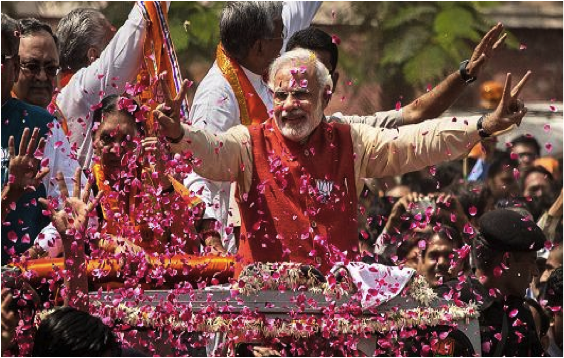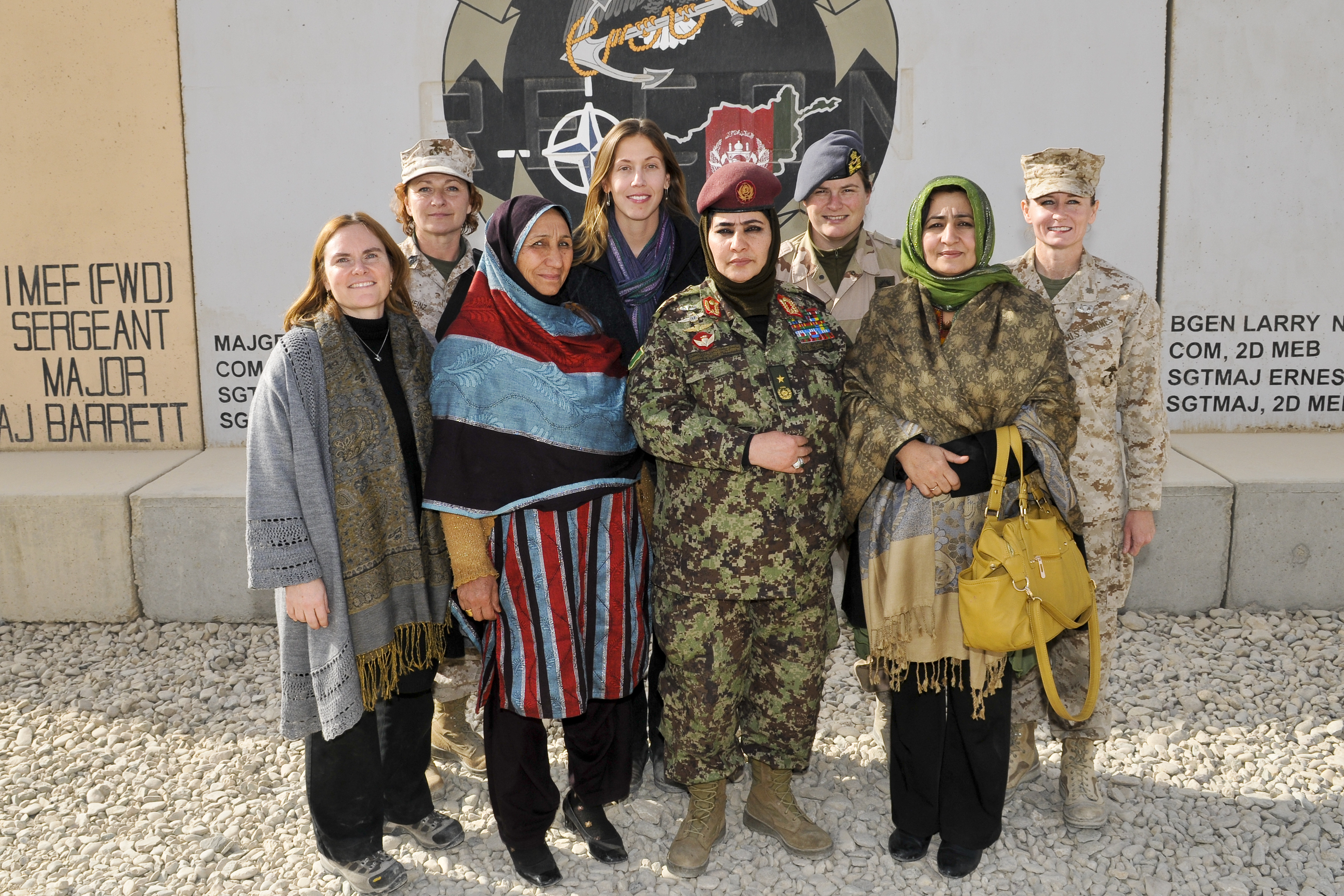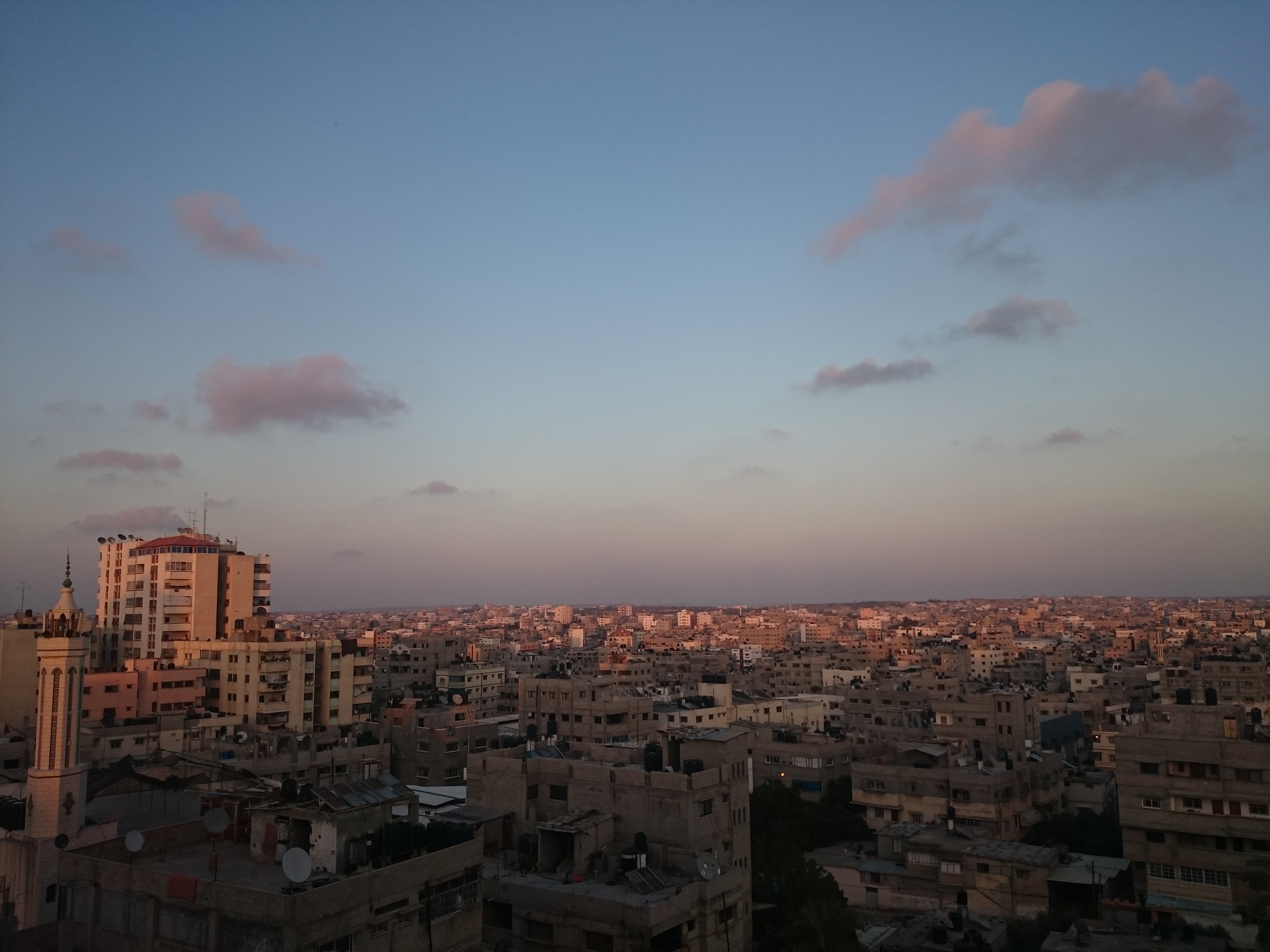
On May 16, 2014, India was home to the world’s largest election in the world, with some 500 million votes cast. The Indian general election of 2014 installed the 16th Lok Sabha (the Parliament’s lower house), electing various members to the parliamentary constituencies of India. In a sweeping victory, India is set to see a majority government under the former opposition Bharatiya Janata Party (BJP) led by leader Narendra Modi, the 14th Chief Minister of Gujarat. The BJP has been labeled as the right wing Hindu nationalist party, the party that advocates for social conservatism and a foreign policy centered on nationalist principles. While the world anticipated Modi to gather enough seats to lead a coalition, few expected the BJP to win a landslide 283 out of 543 seats.
While the world waits in anticipation to see how the Prime-Minister-elect will respond to the ‘wall of terrorism’ that has separated India and Pakistan, bilateral relations with the U.S. and growing economic competitiveness with China, an equally important question remains: will women’s voices be heard by the world’s largest democratically-elected government?
According to Sumita Mukherjee, lecturer in Economic and Social History at the University of Glasgow, the BJP received broad support from women, though it is uncertain to what extent Indian women were active participants in the national political debate. Women have good reason to take part in this election. Few will forget the 2012 New Delhi gang rape of a 23-year-old female student on a bus that sparked growing concerns about women’s rights in India. The local and international protests that resulted after the brutal gang rape by six men sparked a fierce debate – leading to the creation of a ‘Womanifesto,’ remarkablein a country where violence against women is the norm.
The Indian Womanifesto is a 6-point strategic plan, drafted in 2013, which calls on political parties to take their responsibilities toward Indian women seriously. Notable signatories of the manifesto include Chief Minister Dikshit, economist and Padma Bhushan awardee,Devaki Jain and advocate of the Supreme Court of India, Karuna Nundy. The manifesto demands that politicians make commitments within the next five years to reverse generations of deep physical and sexual violence for India’s women and girls. The manifesto’s six points include: Educate for equality; make laws count; put women in power; appoint police for the people; enact swift, certain justice; and ensure a flourishing economy.
So what is to be expected from Modi and his party?

On the first day of the polls, the BJP released its platform saying that women’s security was a primary focus, though some worry this might just be another empty political promise. While Modi has advocated for greater political participation of women (a worthy goal), many believe the primary concern should be protecting the safety of India’s women and girls. According to data released by the National Crime Records Bureau, in 2011, a total of 24,206 rape cases were registered in India, an average of 66 per day. Critics of the BJP argue that the Hindu Right’s genuine attitudes towards women are based on fascist politics, in which women are seen as bearers of a community’s honor, used by men in the society for their pleasure. In fact, according to Praful Bidwai, an Indian journalist and activist, Modi was the mastermind behind the unspeakable use of gang rape as a weapon against women in the 1992 Surat riots. In addition, in an unusual admission during his nomination, Modi, known by the public to be a bachelor without a family revealed that he was in fact married. For many of Modi’s critics, the Prime-Minister-elect’s 50-yearsecret marriage is a sign of his lack of respect for women. It is unsettling that a man who hid his spouse for 50 years is now responsible for addressing the future protection of women, legally and institutionally in a country where marital rape is still not criminalized.
No one can predict what the future holds for India’s women and girls but I struggle to find comfort in a leader who, when interviewed by the Wall Street Journal in 2012 about the state of malnutrition in his country, responded that Gujarat’s girls were ‘figure-conscious’.
Women’s empowerment and equality are in danger of becoming little more than tokenism for political parties around the world, eager to get into office. Female empowerment, however, is more than just a buzzword. It is a dream that one day women around the world will be seen as equals. It is the hope that in the near future a village council will not order a woman to be gang-raped for falling in love with a man from a different religion, a case that took place in India this past January. It is the prospect that one day women will be able to hold legal title to land. Until that day has come, we as Canadians have a responsibility to advocate for these women.




